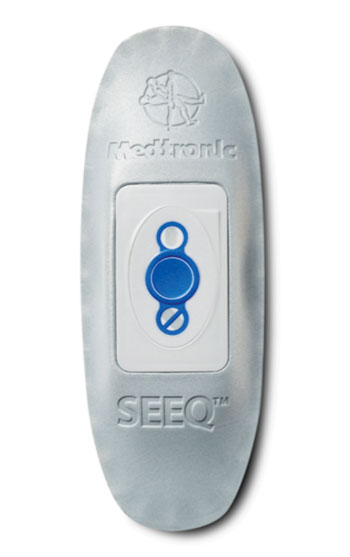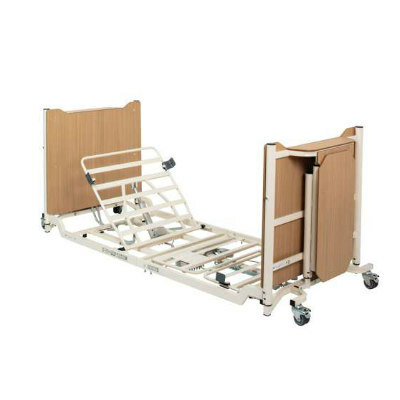Remote Monitoring System Helps Identify Cardiac Symptoms
By HospiMedica International staff writers
Posted on 08 Oct 2014
An external, wire-free, adhesive heart monitor helps detect and diagnose the cause of irregular heartbeats.Posted on 08 Oct 2014
The SEEQ Mobile Cardiac Telemetry (MCT) system is indicated for patients who experience symptom—such as syncope, lightheadedness, vertigo, palpitations, or shortness of breath—that are indicative of an irregular heartbeat, but are not detected by a 24-hour Holter monitor. The water-resistant adhesive sensor monitors the heart continuously for up to 30 days, and since it has a slim profile and no wires it can be worn discreetly, so that patients can be monitored even while exercising, showering, or sleeping.

Image: The SEEQ Mobile Cardiac Telemetry (MCT) system (Photo courtesy of Medtronic).
Automatically activated when applied to the skin, the SEEQ MCT remotely monitors every heartbeat and automatically sends important cardiac data to a dedicated data center staffed by cardiographic technicians who provide continuous, round-the-clock cardiac monitoring. And while the system captures and transmits cardiac data automatically, a trigger button also allows patients to alert the monitoring center, should they have symptoms.
Whichever way the trigger is activated, data are transmitted via Bluetooth and cellular connections to the monitoring center, operated by Medtronic Monitoring, which provides reports to prescribing physicians for review and analysis. The SEEQ MCT system and Medtronic Monitoring Center are products and services of Medtronic (Minneapolis, MN, USA).
“By adding a short-term cardiac monitor to complement our insertable long-term Reveal LINQ device, Medtronic is providing a comprehensive portfolio of diagnostic tools to help patients with different types of symptoms,” said Nina Goodheart, vice president and general manager of the diagnostics and monitoring business at Medtronic. “The SEEQ MCT System and Medtronic Monitoring Center give patients a simple, easy-to-use, short-term diagnostic solution while ensuring that important cardiac data are captured so that physicians can make timely and actionable diagnoses.”
“The SEEQ MCT system allows us to get the critical arrhythmia recordings we need to make treatment decisions without being burdensome to patients,” said electrophysiologist Ethan Levine, DO, director of electrophysiology and arrhythmia services at Arnot Ogden Medical Center (Elmira, NY, USA). “Wearing a bulky monitor for more than a couple of days can be a frustrating experience for patients. Because this device is an inconspicuous and easy-to-use adhesive patch, patients are more likely to wear it continuously, allowing for more consistent and comprehensive capturing of data, which enables physicians to make accurate diagnoses and timely treatment plans.”
While the SEEQ MCT System is prescribed for patients who may require up to 30 days of monitoring, Medtronic also offers the Reveal LINQ insertable cardiac monitoring (ICM) system, which is designed for those whose cardiac arrhythmias are less frequent, and may not be detected by short-term monitoring systems. The Reveal LINQ ICM can continuously monitor patients for up to three years.
Related Links:
Medtronic














